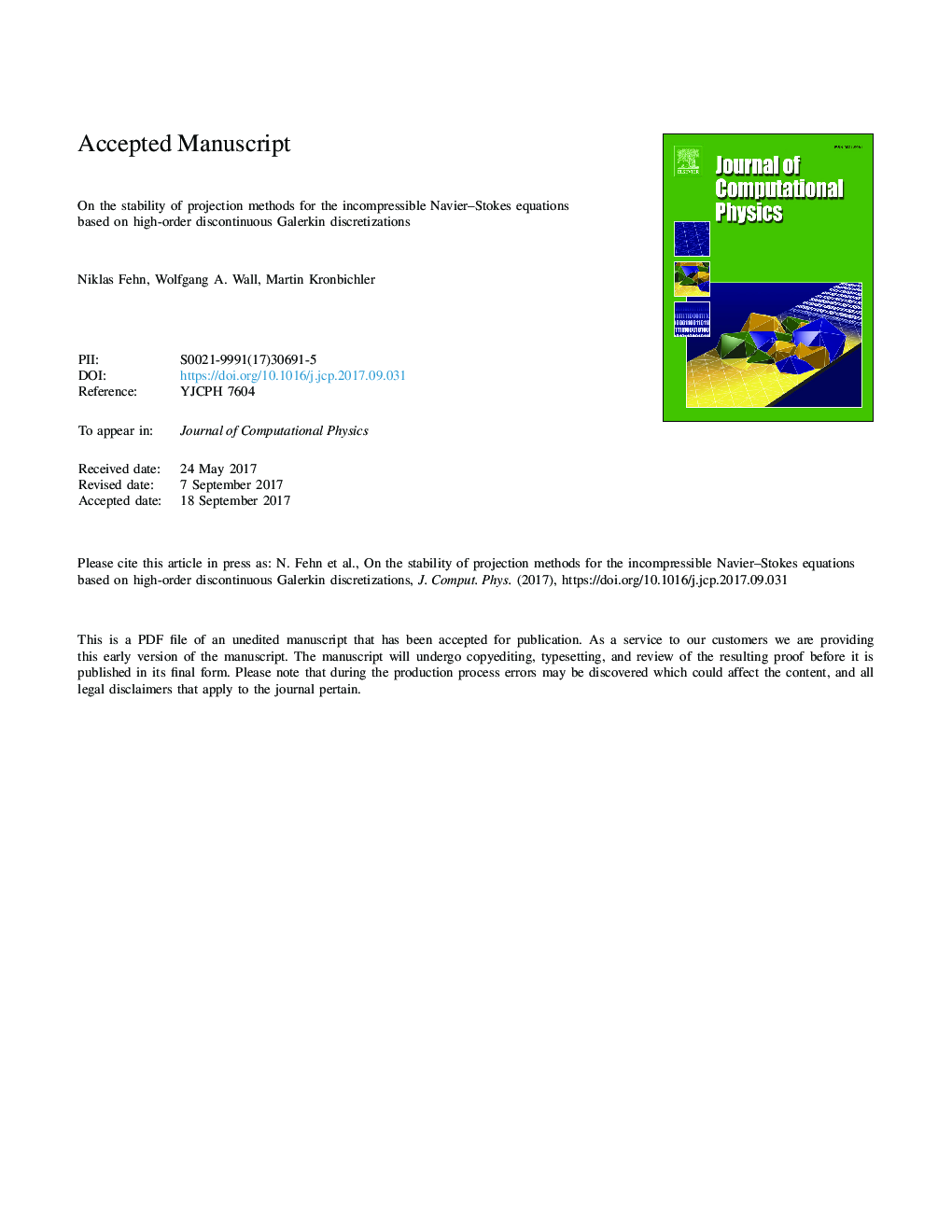| Article ID | Journal | Published Year | Pages | File Type |
|---|---|---|---|---|
| 6929366 | Journal of Computational Physics | 2017 | 37 Pages |
Abstract
The present paper deals with the numerical solution of the incompressible Navier-Stokes equations using high-order discontinuous Galerkin (DG) methods for discretization in space. For DG methods applied to the dual splitting projection method, instabilities have recently been reported that occur for small time step sizes. Since the critical time step size depends on the viscosity and the spatial resolution, these instabilities limit the robustness of the Navier-Stokes solver in case of complex engineering applications characterized by coarse spatial resolutions and small viscosities. By means of numerical investigation we give evidence that these instabilities are related to the discontinuous Galerkin formulation of the velocity divergence term and the pressure gradient term that couple velocity and pressure. Integration by parts of these terms with a suitable definition of boundary conditions is required in order to obtain a stable and robust method. Since the intermediate velocity field does not fulfill the boundary conditions prescribed for the velocity, a consistent boundary condition is derived from the convective step of the dual splitting scheme to ensure high-order accuracy with respect to the temporal discretization. This new formulation is stable in the limit of small time steps for both equal-order and mixed-order polynomial approximations. Although the dual splitting scheme itself includes inf-sup stabilizing contributions, we demonstrate that spurious pressure oscillations appear for equal-order polynomials and small time steps highlighting the necessity to consider inf-sup stability explicitly.
Keywords
Related Topics
Physical Sciences and Engineering
Computer Science
Computer Science Applications
Authors
Niklas Fehn, Wolfgang A. Wall, Martin Kronbichler,
